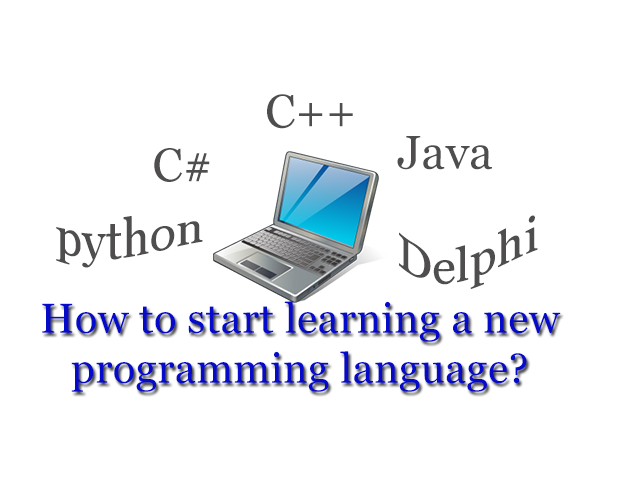Times change…

In 2021, there is a great variety of programming languages out there. The time of limited choice of languages to program with is way past behind us. Now you can either stick to one of the “elders” of programming languages, such as Basic, or go all simple and modern with Python or C#, or maybe even develop certain functions and areas of your software/application using different programming languages. For example, the back-end of your program would be coded in Python, the front-end designed with CSS, and the data would be collected and managed with SQL.
Such a great range of languages opens up opportunities for everyone to have their own individual path of becoming a developer. However, a larger number of choices brings more pressure with it when it comes to selecting which language to learn first or next, how to learn it, etc. There is always a fear of: “What if it is not the best language to start with?”, “What if I am learning it wrong?”, “Should I stick to theory only, or try to be more practical with it?”
In today’s blog, we will provide you some tips when it comes to learning a new language, and we hope that it will be helpful for all, regardless if it is your 6th language you are learning, or your very first.
One concept does not change: fundamentals!
Just like with any other science field, sports, or craft, without basics you cannot get far. The biggest mistakes people make is learning the language chaotically, based on what Youtube suggests for a next video. In the end, they end up jumping between basic and advanced concepts, struggling to grasp either.
Nearly every programming language has the same number of pillars that everything is based on. The concepts do not change, only the complexity increases. Below, you can find the list of them, ordered in a way, that we suggest learning it to achieve the most coherent understanding of the language (note, that this is based on our personal, subjective view):
- Declaring variables, variable types, converting between variables
- Simple procedures, methods, that do not return a separate value, but modify the input given
- Conditional statements
- Loops (in most cases, the essentials are for- and while- loops)
- Declaring and using functions
Of course, there are more concepts to each programming language, however, if you understand and master the above mentioned topics, you will quickly grasp any new syntax that you would come across on the path of a developer with the language of focus.
Have a game plan
To build up on the previous point of having a structure when it comes to what to learn and in what order, it is also important to structure each individual study session efficiently. Dedicate about 30-60 mins to covering new theory and then try to apply it as much as possible. You can easily search the web for exercises of any difficulty. Start off with a few simple ones, and keep increasing the difficulty, until you will be confident with the level of understanding that you have reached regarding this part of the language.
Applying the theory learnt to exercises and projects and keep going at it until you achieve a certain confidence level will ensure you, that you will master the fundamentals and each individual topic, leading to a solid, deep knowledge without any holes in it or lack of practice, which will help you to stand out from the rest of the field of developers.
Experiment with projects!
It is impossible to become a developer of any decent level by just going through theory. Try to implement project development as much as possible throughout your learning journey. This will create two major benefits for you. Firstly, you will remember and understand the concepts much better, due to sufficient practice. Secondly, you will have the opportunity to develop the portfolio of your own projects while still learning! Having a deep portfolio, with projects demonstrating all sides of your ability as the developer is one of the most important factors when applying for a job in any company.
Lastly, have fun with it!
You should enjoy playing around with code and learning it. After all, that is what programming is for. It opens up opportunities for you to create nearly everything that you can think of. Please, do not over-discipline yourself to only academic level theory, papers, and projects. Play around with it! Try to develop applications that would make your own life easier! Do not limit yourself as a creator and developer!
We hope you enjoyed reading today’s post and found it helpful for your journey of learning a new programming language. Please, if you have any questions, let us know, make sure to check out our other blog posts, and keep up to date on the news via following our LinkedIn page!

